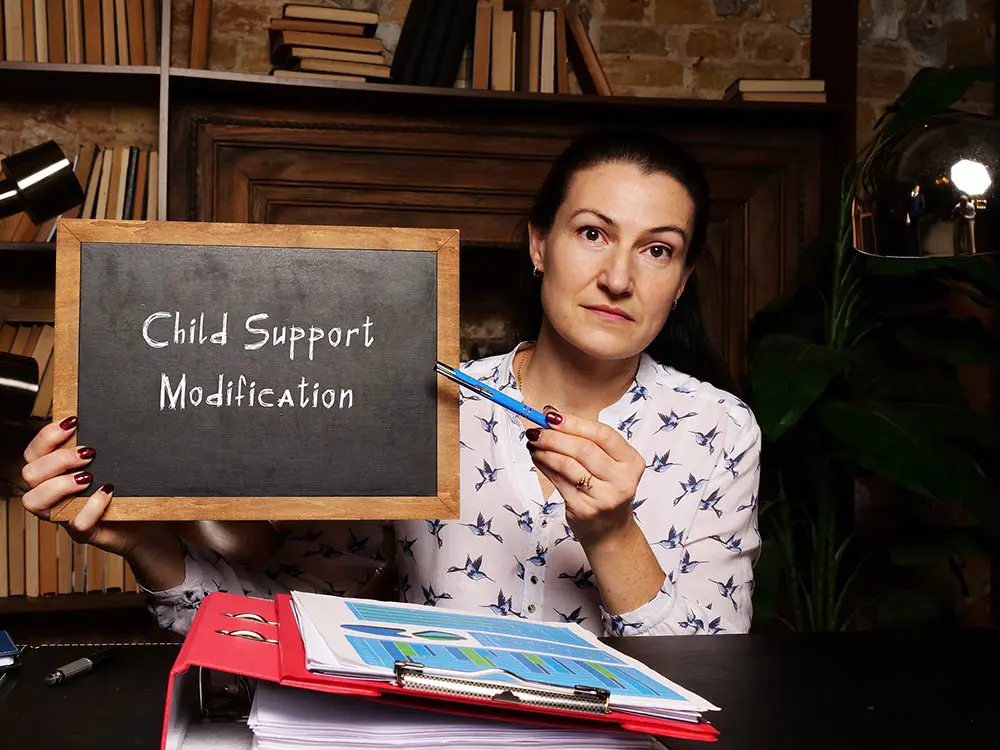You can request a modification of child support in Massachusetts when there’s been a significant change in circumstances or if the existing order no longer aligns with the state’s guidelines. Child support isn’t a one-and-done calculation; it’s designed to adapt as life evolves. A change in income, job loss, health issues, or shifts in parenting time can warrant a review and potential adjustment of the existing support order.
Raising children isn’t predictable. Promotions, layoffs, and life changes happen, and kids develop new needs as they grow. Because of this, Massachusetts law allows parents to revisit child support obligations when circumstances shift enough to justify modifications. The goal is to ensure child support remains fair and appropriate based on the current realities of both parents and the child.
Suppose you’re considering modifying a child support order in Massachusetts. In that case, it’s essential to understand when the court will consider a change, how to file a request, and what evidence you’ll need to present. In this guide, we’ll examine the legal standards for child support modification, the process involved, and why working with a knowledgeable family law attorney can make a difference.

legal standards for child support modification
What Counts as a Material Change in Circumstances?
AA substantial increase or decrease in either parent’s income, a change in employment, a new healthcare need for the child, or a change in custody or parenting time count as a material change in circumstances. The court looks for long-lasting changes, not minor or temporary, that alter financial stability in an impactful way.
Income shifts, job loss, or benefit changes
A material and substantial change under Massachusetts law means that something significant has happened to alter the original child support order, not just a minor inconvenience, but a fundamental shift that affects the child’s financial needs or a parent’s ability to pay. For example, when a parent loses a job, experiences income changes, or receives a promotion that boosts gross income, the court may find grounds to get support recalculated.
Beyond employment, other factors can trigger a modification. Rising daycare costs, changes in healthcare costs, or adjustments to health insurance coverage all qualify. If parenting time shifts substantially, such as one parent assuming more overnights, that too can prompt a review. As a practical guideline, Massachusetts courts often consider a 25% income change significant enough to revisit and potentially modify the child support order.

What Must Be Included in a Massachusetts Parenting Plan?
YParenting time or custody schedule changes
A significant shift in shared custody can change the financial responsibilities between parents, which may warrant a recalculation of child support. When a parent gains custody, the court recalculates amount to reflect the new custody order. A change in the parenting plan can affect which formula applies, with shared or sole custody determined by the time percentage each parent has with the child.
How Often Can You Request a Child Support Modification?
You can request a modification any time there is a material and substantial change in circumstances, regardless of how long it’s been since the last order.
Massachusetts does not require a waiting period between requests, but the court recalculates the amount only if there is evidence to support the change. Frequent filings without valid reasons may be denied to prevent misuse of the process.
The three-year “check-up” rule
Under the 2021 Massachusetts Child Support Guidelines, a parent requests review every three years during the designated review period, even without proving a material and substantial change. However, no automatic recalculation occurs. You must file a formal modification request to initiate the process, and the court reassesses obligation based on the current financial information and support guidelines.
Modifying before child turns 23
A parent files before child turns 23 to adjust support, as Massachusetts allows modifications until the child reaches emancipation or turns 23 if receiving college support. The modification timeline remains open during this period, and the court modifies order based on updated financial needs, educational expenses, and each parent’s ability to contribute.
Where and How Do You File for a Child Support Modification?
You file for a child support modification by submitting a Complaint for Modification at the Probate and Family Court that handled your original case. It’s not automatic; you have to take the first step.
You’ll need to fill out some forms, update your financial information, and officially file the paperwork with the court. Once that’s done, the court schedules a hearing where both parents can explain what’s changed, and the judge decides whether the child support amount should be adjusted.
Filing in the Probate & Family Court
The parent files complaint in the same Probate and Family Court that issued the original order, keeping the case under the same court docket. Most parents file a Complaint for Modification when they disagree on the changes. However, if both parents agree, they can submit a joint petition, which often moves faster since the court schedules hearing primarily to review and approve the agreement rather than resolve a dispute.
When DOR can file on your behalf
The Department of Revenue can step in when they’re already involved in enforcing the original support order. If the custodial parent asks for help, the enforcement unit may assist as the DOR files complaint to seek a modification. However, this only applies to financial support issues. If custody or parenting time changes are involved, the parent requests review directly with the court.
What are the Fees and What Does Retroactive Mean?
Filing for a child support modification in Massachusetts usually comes with a small filing fee, but you may be able to request a waiver if you can’t afford it. When a modification is approved, the new support amount can apply retroactively, meaning it takes effect starting from the date you filed your Complaint for Modification, not the date of the court’s final decision. This ensures that any delay in scheduling or processing doesn’t unfairly benefit or harm either parent.
Filing costs for modification requests
The parent pays filing fee and related costs to start the modification process:
- Filing fee: $50
- Summons fee: $5
- Surcharge: $15
If paying these fees is a hardship, the indigency form can be submitted to request a waiver. If approved, the court waives cost, and the case can proceed without payment.
Retroactivity rules in Massachusetts
In Massachusetts, modifications apply retroactively only to the service date, not when the change happened. Once the parent serves complaint, any adjustment in support starts from that date. The judge sets retroactive date based on this, which means waiting to file can lead to accumulating retroactive support and unpaid back pay that may be harder to manage later.

What Risks Should You Consider Before Filing?
Filing for a child support modification can backfire if your situation doesn’t justify a change or if the new calculation lowers support instead of raising it.
The court reviews both parents’ finances, so changes in the other parent’s income or parenting time could work against you. There’s also the possibility of legal fees, delays, and added stress if the case becomes contested. Before filing, it’s smart to weigh the potential outcomes and speak with a family law attorney to make sure a modification makes sense for your situation.
Counterclaims and recalculation risks
When a parent files counterclaim, the other party can ask the court to consider additional issues like custody changes or higher support. This turns the case into a contested hearing, where both sides present evidence. After reviewing everything, the judge modifies both ways, which means the recalculated amount could end up favoring either parent, especially if a support deviation applies based on the new facts.
When college or medical expenses come into play
When a child turns 18, college tuition obligations may prompt a recalculation as the court adds contribution based on each parent’s ability to help with costs. Significant uninsured expenses, like medical or emergency care, can also lead to adjustments in support. In these cases, post-minority support may continue, and the parent pays tuition or shares medical costs as ordered by the court.
What Happens If You Never File for Modification?
If you never file for a child support modification, the existing order stays in place, even if your circumstances have changed. The court can’t adjust support on its own, so unpaid amounts will keep building if you’re struggling to pay, or you might miss out on receiving additional support if you’re entitled to more.
Without filing, you lose the chance to have the order reflect your current situation, which can lead to growing arrears, legal consequences, and financial strain for both parents.
Arrears and limits on retroactive adjustments
In Massachusetts, once a parent owes arrears, those unpaid amounts don’t just disappear. The court can’t go back and lower what’s already overdue unless a complaint was served before the payments piled up. This follows the same idea as the Bradley Amendment, which basically says child support arrears can’t be forgiven after they’re owed.
If payments fall behind, the DOR enforces balance using enforcement tools like wage garnishment, tax refund intercepts, or even license suspensions. Keep falling behind, and you could face contempt, which can lead to more serious legal trouble.
How a Family Law Attorney Can Help You Modify Support
A family law attorney doesn’t just file paperwork; they help you figure out if your situation truly qualifies for a change and build the strongest possible case to present to the court. They know how to run the numbers, handle the legal red tape, and spot the risks you might not see coming. With an attorney in your corner, you’re not walking into the process blind or risking a surprise outcome you didn’t expect.
They can also:
- Catch red flags early that could trip up your case
- Keep your filing on track so deadlines don’t sneak up on you
- Help you sidestep unnecessary fights with the other parent
- Make sure all the small legal details are handled correctly
- Translate complicated court decisions into real-world next steps
Legal advice for filing or negotiating
A family law attorney can make the entire process smoother by making sure you’re eligible to file, preparing the strongest case, and helping you avoid costly mistakes. When an attorney prepares complaint, everything is filed correctly and on time, which reduces delays and avoids harmful recalculations. If the case moves to a support hearing, your lawyer argues case and presents your side effectively.
For personalized help with filing, negotiation, or courtroom representation, consider working with Michelle Murray for experienced and reliable legal representation. experienced family law attorney can help you draft a clear, enforceable plan tailored to your family’s needs.

Michelle Murray has devoted her practice exclusively to family law matters, focusing her efforts on assisting clients through divorce, custody, property division, child support, spousal support, and visitation issues throughout Worcester County.
